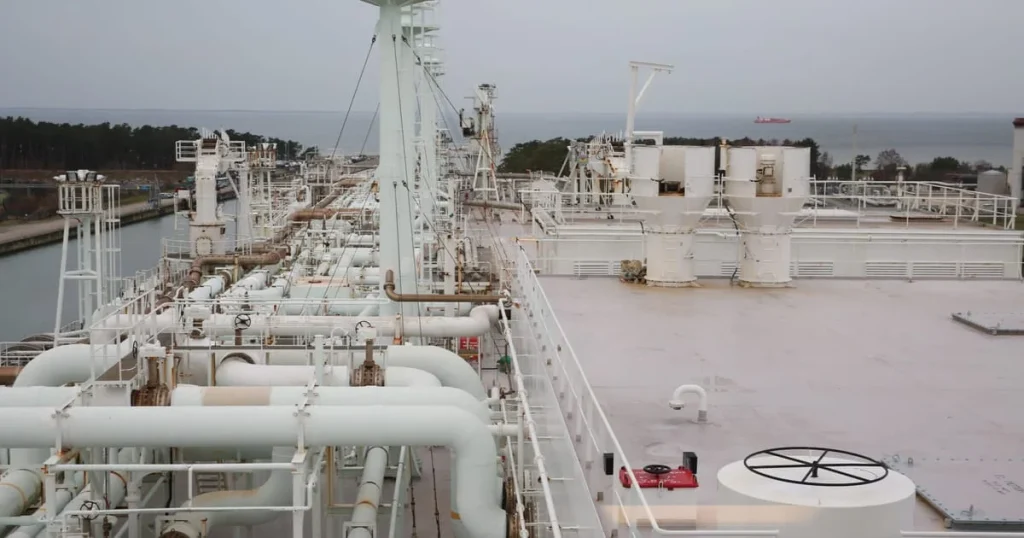The European Commission plans to ban Russian liquefied natural gas (LNG) imports starting January 1, 2027, moving the timeline forward by a year.
This is part of the 19th sanctions package against Moscow, EU officials said on Friday, September 19, 2025, aiming to escalate pressure on Russia amid ongoing tensions.
Wide-Ranging Restrictions
Set to be unveiled later today, the package targets Russia’s shadow tanker fleet used to bypass oil export restrictions. It also hits cryptocurrency transactions, banks in Russia and Central Asia, Chinese refineries, and special economic zones.
A customs loophole allowing Moscow to import dual-use military goods will also be closed, tightening economic restrictions.
Shift in Focus
The accelerated LNG ban gained urgency after a Tuesday call between European Commission President Ursula von der Leyen and U.S. President Donald Trump.
Initially set for 2028, the timeline shifted due to Trump’s push for the EU to end Russian energy reliance faster, aligning with support for Ukraine.
Strategic Implications
These sanctions aim to disrupt Russia’s war economy while securing Europe’s energy future. Targeting the shadow fleet and financial networks cuts military funding, while including Chinese entities broadens the scope.
As the package heads to member states for approval, debates over economic impacts, especially for LNG-reliant nations, are expected.
Future Outlook
A 2027 LNG ban could reshape Europe’s energy landscape, boosting reliance on suppliers like the U.S. and Qatar. Trump’s influence highlights transatlantic alignment against Moscow.
With the proposal’s details pending, attention turns to enforcement and potential exemptions. This package builds on prior sanctions, aiming for sustained pressure.
US Shipbuilders Seek Supreme Court Review of No-Poach Lawsuit




















